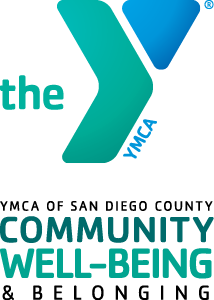In the picture left to right: Ben C., Kristina H., Naomi S., Anette R., Tara H., Nicole R., and Melissa V.
California residents face more wildfires than ever before and live in constant fear of the next Big One, so we know firsthand the value of First Responders in our community. But while our emergency services personnel are busy saving lives, who is taking care of them? A new partnership between YMCA Youth & Family Services (YFS) and the San Diego Red Cross Disaster Mental Health (DMH) team hopes to be part of that equation.
A team of YMCA YFS Social Workers and Marriage and Family Therapists with diverse levels of therapeutic expertise is currently undergoing trainings to assist during Red Cross disaster and mass casualty response efforts. After the process is complete in October, this team will be able to provide mental health services specific to disaster response, as well as activities related to responder wellness and casework. The partnership brings our mission to care for all people through the development of the spirit, mind, and body right to the front lines of a crisis – where help is needed the most.
Read the interview below with the YMCA’s Director of Clinical Education, Tara Hodgens, to learn more about the partnership.
YMCA: Why are you doing this?
Tara Hodgens: Because we are legit crazy and adrenaline junkies? Nope, we all have our individual reasons, but it’s something that we developed because of the increases in mass casualty and disaster events happening around the country. We want to be prepared to help out in any way we can. This idea was sort of birthed in 2010 when a 7.0 earthquake hit Haiti. Another YFS Therapist and I wanted to help but we had tiny toddlers at the time and were not able to deploy nor were we knowledgeable about therapeutic disaster response.
Fast forward 8 years and several shootings and natural disasters (including fires) later – we continued the discussion and decided to throw the idea out to our staff. Here at YFS, we have access to well-trained mental health clinicians and social workers and if we prepare now, there will be less of a delay in people getting services at a time they so greatly need them.
YMCA: What would a typical DMH workers’ day look like?
TH: Well, if there was a local disaster we would be dispatched to the response location and help out as needed – offering food, helping people find loved ones, seeing who may need some extra support in coping with the crisis. Crisis support could also apply to first responders who may feel overwhelmed or who have forgotten to eat and drink that day, that kind of thing.
On days when there is no local crisis, the team may be calling first responders that have come back from long assignments to check in and see how they are adjusting to being back home. We may also call families that were affected by the crisis to see if they need any extra support via services we provide or through referrals to our community partners.
YMCA: How is Disaster Mental Health different from counseling or psychotherapy?
TH: There is overlap, but mainly Disaster Mental Health is a short-term response to an acute situation with the goal of reducing distress and improving basic functioning. The location is generally not private and basic needs/safety are first on the list-making sure people that are injured receive medical attention, etc. Some of the goals in psychological first aid are to provide safety, calmness, connection, and increase a sense of self-efficacy and hope among individuals and the community. Aside from helping, the best part is that there is less paperwork!


